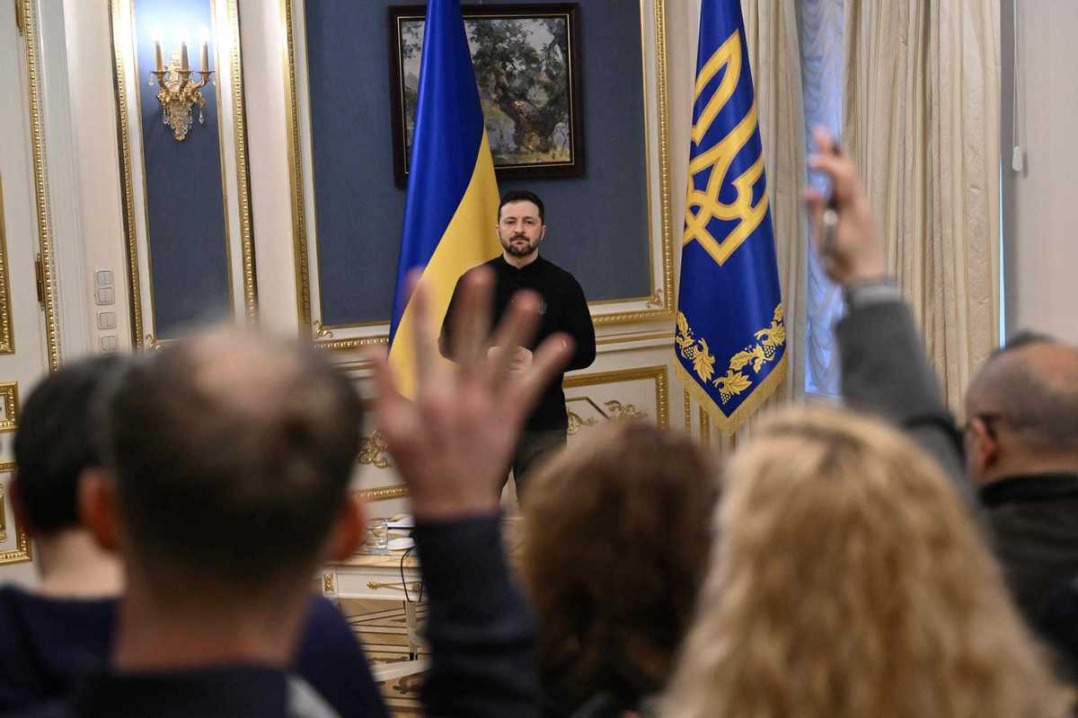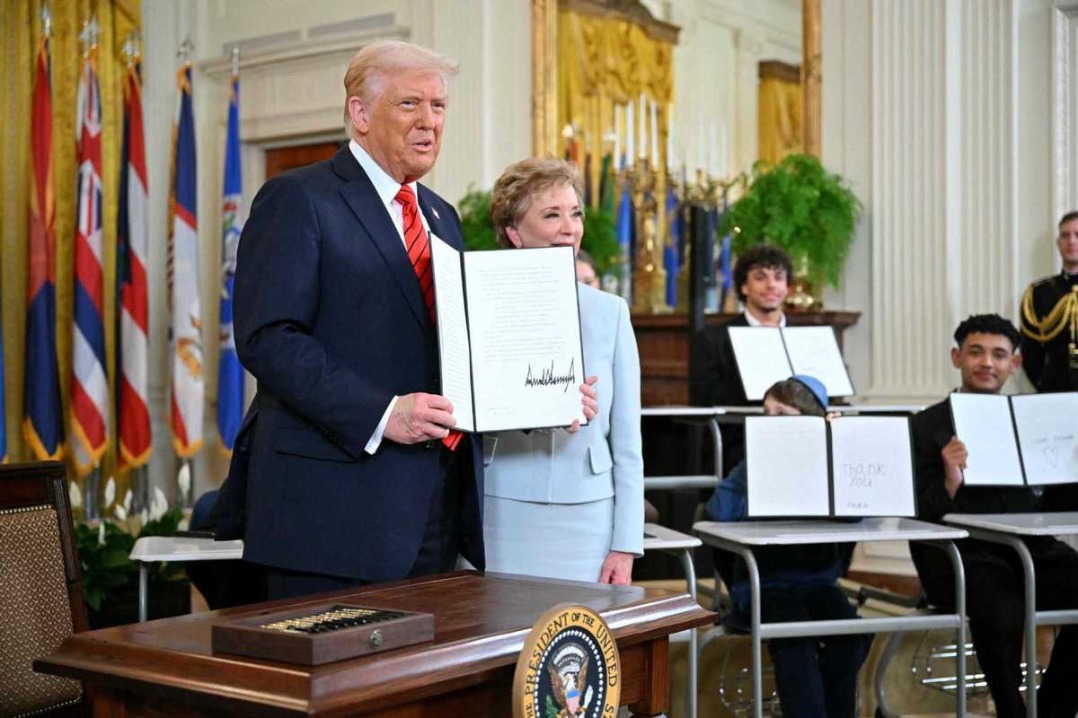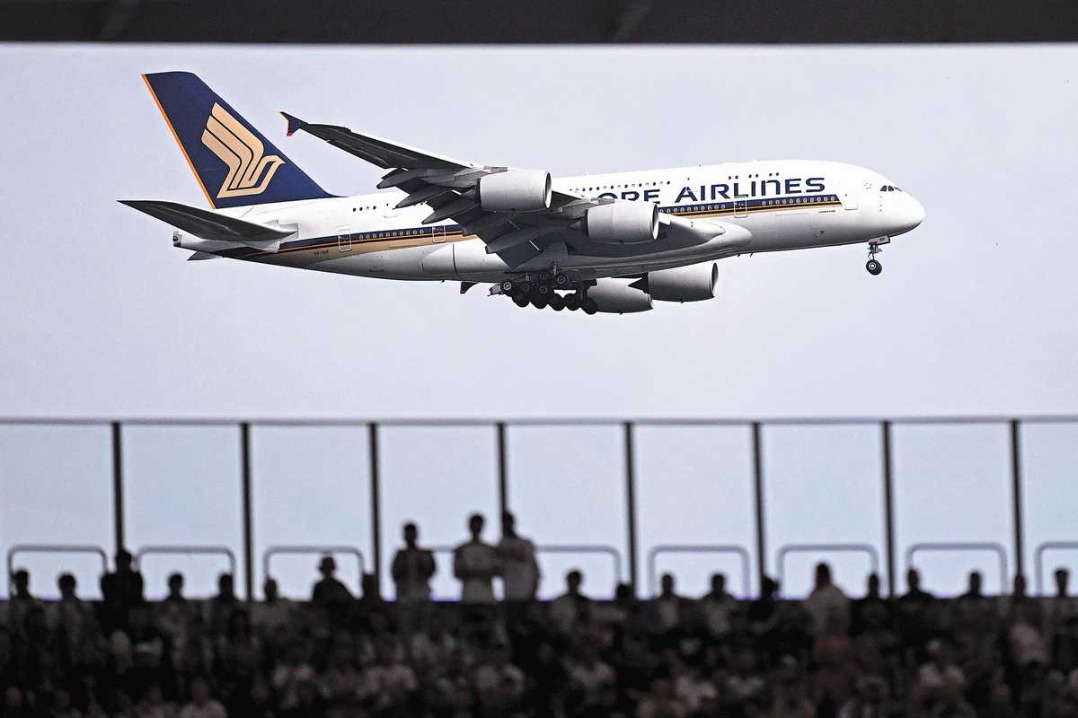UK, US in 'productive' talks as tariffs day looms

United Kingdom Prime Minister Keir Starmer and United States President Donald Trump had what were described as "productive negotiations" during a phone conversation on Sunday night, with the prospect of more talks to follow in the run-up to the date when the US plans to announce a major new set of global trade tariffs.
A spokesperson for Starmer's Downing Street office said the pair talked about "the productive negotiations between their respective teams on a UK-US economic prosperity deal", with more discussions to come, and also touched on what has been happening about the so-called Coalition of the Willing, countries that would be prepared to help keep the future peace in Ukraine.
As of Wednesday, the US intends to introduce 25-percent tariffs on many goods, including all imported cars, following in the path of similar measures already imposed on imports of steel and aluminum.
The UK government chose not to reply in kind to those tariffs, hoping to avoid a trade war, and although high-end UK auto manufacturers including Rolls Royce, Aston Martin, and Jaguar Land Rover would be affected by the new tariffs, it is expected that once again there will be no response.
Trump hopes that tariffs will encourage more domestic productivity and consumption in the US, after the country recorded a record trade deficit in 2024, but the knock-on effect of such a drastic rewriting of global trade in so many industries will increase economic volatility worldwide, as manufacturers are forced to compete for new markets for their goods.
Starmer seems to have a better personal relationship with Trump than some other European leaders, and when he visited the White House in February, Trump said: "I think there's a very good chance that in the case of these two great, friendly countries, I think we could very well end up with a real trade deal where the tariffs wouldn't be necessary. We'll see."
However, Trump implied similar things in his first term of office as president without any deal ever being reached and has been similarly hard to pin down over the current tariff situation, with Wednesday's planned imposition being described as "the big one", only for him to then hint at less severe measures.
In March, Bloomberg called his approach to the issue a "frenzied tariff barrage … marked by reversals and faulty rollouts, baffling US trading partners and businesses while raising questions about the aims of his signature policy".
Similarly, CNN business executive editor David Goldman noted "the back and forth has created volatility on Wall Street, confusion for consumers, and massive amounts of uncertainty for businesses, who are paralyzed by their inability to plan for what's next".

































